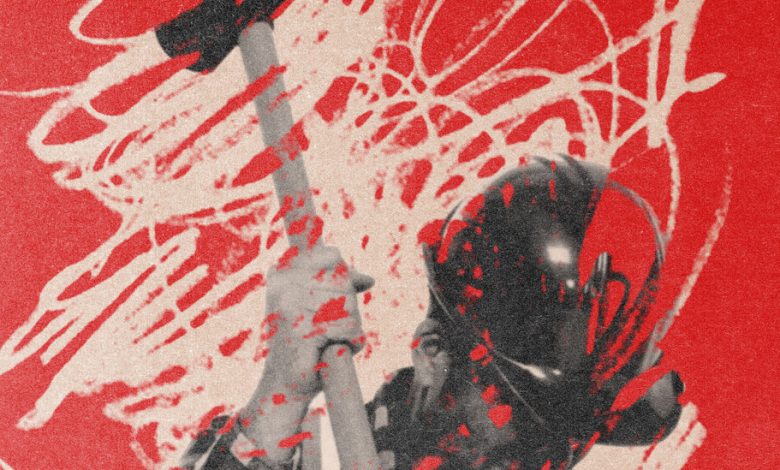How MAGA Corrupts the Culture of the White Working Class

I’m not exactly optimistic about human nature. Yes, I certainly believe that human beings are capable of great good, but consider me in agreement with the Christian apologist G.K. Chesterton, who wrote that the doctrine of original sin was “the only part of Christian theology which can really be proved.” Or, to quote a more modern pair of thinkers, the Indigo Girls, “Darkness has a hunger that’s insatiable. And lightness has a call that’s hard to hear.”
What is true of individuals is also true of cultures. Not long ago, my colleague David Brooks kicked up a hornet’s nest online with a column titled “What if We’re the Bad Guys Here?” In the piece, he took aim at the culture of elite American meritocracy and argued that it had a crucial role in creating this toxic American moment.
As David wrote, this class of elite Americans has many, many virtues, but it’s far from perfect. And he’s right. I’ve experienced this. I grew up in a small town in Kentucky. My family wasn’t working class (my father was a college professor, and my mother was a teacher), but I grew up in a working-class community, and when I left the South to attend law school at Harvard, I experienced both sides of the meritocratic elite.
It was intoxicating to meet people who were openhearted, brilliant and deeply public-spirited. I also met people who were remarkably arrogant, intolerant and, perversely enough (for all their education), ignorant. While I met and befriended many people who liked me in spite of our differences, I met many others who viewed me, a white, conservative evangelical, as an enemy to be vanquished rather than a new neighbor to know. In class, they were far more apt to boo me, hiss at me or try to shout me down than to spend any time in real conversation.
So, no, I don’t look at the American elite and see it as wholly good or wholly evil but rather as something that is torn between the better angels of its nature and the devilish pull toward arrogance, entitlement and exclusion.
But the same thing is true of the American working class, of the people I grew up with in Kentucky and of the people in the rural Tennessee community where our kids spent most of their childhoods. In the tug of war between the angels and devils on our shoulders, too many times the devils prevail. In this toxic moment, much of the American white working class is indulging its worst aspects, enabled and encouraged by a man and a movement that caricatures working-class values, draining them of light until the darkness threatens to overwhelm us all.
What are these working-class values, in the best sense? I don’t want to oversimplify a complex culture, but there are some common themes — directness in speech, a respect for traditional family structures and roles, a more instrumentalist view of work (your job is what you do, not who you are), adeptness at practical learning, a tough protective ethos centered on family and community, and a deep sense of honor and loyalty.
I think, for example, of a vast majority of the NCOs I served with in the military. You could count on them to be honest, to be remarkably brave and to embody a profound sense of protective loyalty to the nation and to the brothers and sisters by their sides.
But these values also have their dark doppelgängers. Directness can become cruelty. Respect for tradition can yield to implacable hostility to necessary change. Protection can become aggression, dedication to common sense can devolve into prideful ignorance, and healthy loyalty can morph into destructive defiance.
I’m reminded of a vivid moment in the movie “American Sniper.” Young Chris Kyle, the hero of the film, was involved in a schoolyard fight, and his father gave him a life lesson. There are three kinds of people in this world, his father said: sheep, wolves and sheepdogs. Wolves prey on the flock. Sheepdogs defend the flock. Kyle’s father made the choice clear. He wouldn’t raise a wolf or a sheep. Kyle’s purpose was to be a sheepdog.
Now, I ask you, as the Republican Party self-consciously tries to become the party of the American working class, which set of values does it model and espouse? Sheepdog or wolf? When Donald Trump said, “I could stand in the middle of Fifth Avenue and shoot somebody, and I wouldn’t lose any voters, OK?” he was cultivating not healthy loyalty but rather destructive defiance, and that defiance has withstood some of the worst scandals and misconduct in the history of the presidency.
When Senator Ted Cruz took the stage at a conservative conference and declared, “I’m Ted Cruz, and my pronoun is ‘kiss my ass,’ ” he wasn’t being direct or plain-spoken. He was crass and demeaning. When Senator Josh Hawley raised his fist in support of the Capitol mob before the Jan. 6 attack, he was saluting the wolves.
But here’s what’s particularly perverse: Each of the individuals I just mentioned is a member of the upper echelon of the American elite. Trump is an Ivy League-educated heir to staggering wealth. Cruz is a graduate of Princeton University and Harvard Law School. Hawley is a Stanford University and Yale Law School graduate who clerked for Chief Justice John Roberts.
In other words, like so very many elite members of the Republican Party, they’re standing well outside the white working class while they role-play a dark caricature of its values and interests. And all too many members of the American working class are eager to embrace that caricature. They soak up the pandering and pledge their loyalty in return.
Perhaps no single public figure better embodies this descent than Senator J.D. Vance of Ohio. He grew up working class, faced incredible familial adversity and yet demonstrated real courage and grit. He joined the Marines after high school and served in Iraq. He attended a state university before he was admitted to Yale Law School.
The book that vaulted him to fame, “Hillbilly Elegy,” was a moving meditation on his life and community. The book resonated with me in large part because he so plainly loved his family and his neighbors while perceiving their weaknesses. I read the book not as an attack on or a defense of his community but as a powerfully true and insightful story.
And now? He’s one of Trump’s most loyal supporters in the Senate. Vance told The American Conservative, “I think our people hate the right people.” After his ally Marjorie Taylor Greene spoke at a conference organized by Nick Fuentes, a notorious white supremacist, Vance not only said Greene did “nothing wrong”; he declared, “There’s no business in the world that asks you to stab your friends in the back like politics” and “I’m absolutely not gonna throw her under the bus or anybody else who’s a friend of mine.”
Is that admirable loyalty? Or destructive defiance?
Communities shape leaders, and leaders shape communities. Right now, in this dangerous moment of American life, MAGA corrodes the character of a vital American community, from the top down and the bottom up. Republican elites, from Capitol Hill to Fox News to the local lawyer driving his $250,000 MasterCraft in a Trump boat parade, are delivering the worst kind of red meat to their working-class base. And sadly, that base isn’t rejecting the posers and demagogues. It’s looking at a collection of the fakest men and women in American politics and shouting, “More!”




